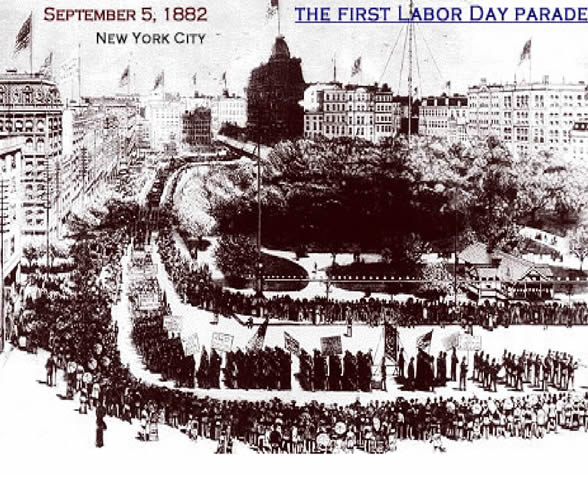Contributed by Cheryl Watts
In the U.S., Labor Day has become a symbol for the end of summer. For some it is a long weekend, an opportunity to enjoy a mini holiday and the last days of summer, a weekend of picnics, swimming and the sight and smell of barbeque smoke in the air.
On June 28, 1894, President Grover Cleveland signed the law making the first Monday of September a national Labor Day holiday, thus allowing workers to enjoy a long weekend, known as Labor Day Weekend. This year Labor Day falls on September 4th.
Throughout the U.S., celebrations take place in small towns and big cities with picnics, parades, marching bands, and last hurrahs, as many summer activities end. For example, New York offers the Brooklyn Labor Day Carnival, and fireworks over Coney Island. In Washington D.C., one popular event is the free Labor Day Concert at the U.S. Capitol featuring the National Symphony Orchestra.
Labor Day is more than letting go of the dog days of summer. It recognizes the American labor movement and the contributions of laborers in the development and achievements of the United States. It celebrates the struggle of American workers for the minimum wage, 8-hour day, equal rights, child labor laws and other working conditions that improve the standard of living for all workers.
On Labor Day, we remember the work of those in the labor movement who fought hard for workers’ rights. The leisurely holiday of today was inspired by less restful events in our history.
It was not until Sept. 3, 1916, that our modern 8-hour workday became law. Although Henry Ford adopted the 40-hour work week in 1926, Congress did not regulate the length of the work week or the employment of children under 16 years until 1938. Progress was slow, but without the tenacity of everyday Americans we might not be where we are today.
The American Industrial Revolution quickly expanded the American economy – spurred on by the expansion of the railroads. But it came at a price. American workers often toiled up to 12 hours a day, seven days a week.
Labor history is one of the most important chapters in the history of America. It is important that every American know about the achievements and sacrifices of laborers. Without their participation, America would never have become one of the most powerful countries in the world.
American workers have fought to improve working conditions since the Industrial Revolution. The overworked masses of underpaid workers laid the groundwork that created volumes of employment laws. Their sacrifices helped guarantee the rights that workers enjoy today, including overtime, vacation days, sick leave, paid family leave, workplace diversity and Labor Day — a break from, well, working.

